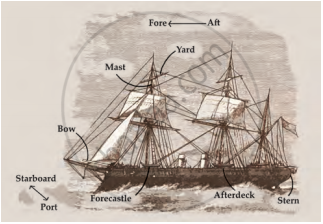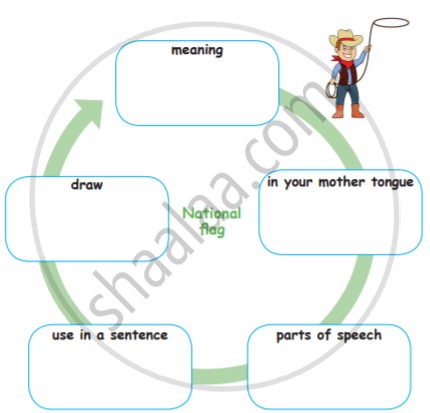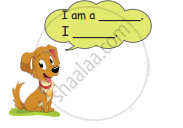Advertisements
Advertisements
Question
Why did the author finally give up on his watch?
Solution
The author got the watch repaired seven times. By the end, he realised that the watch, with its original cost being two hundred dollars, had cost him two to three thousand on repairs itself. And the watch was still malfunctioning. It was when he reached the seventh watch maker and acknowledged the mechanic to be an old acquaintance, a steam-boat engineer of other days and not a good engineer. He gave his verdict like all other watch makers, the author was not gullible and this time he perceived what his uncle William used to say that a good horse was a good horse until it had run away once, and that a good watch was a good watch until the repairers got a chance at it. So, he finally gave up the repairing and decided to let the watch be.
APPEARS IN
RELATED QUESTIONS
How does Anne criticize the attitude of the grown-ups in her diary?
Read the following passage carefully and complete the activities given below :
A.1) Complete the web :
Write the words from the passage on the web. 
We saw small bits of grass peeping through the small cracks in concrete pavement. It left us thinking: however impossible things may look, there is always an opening…………
We saw a tree bare of all leaves in the cold winter months. We thought its chapter was over. But three months passed, spring set in and the tree was back to its green majesty once again, full of leaves, flowers, birds, and life. What if we too had the conviction that, however difficult things are right now, it will not remain so forever. Remember, this too shall pass.
We saw an army of ants lugging a fly which was at least ten times the ant’s size. The ants organized themselves around the fly, lifted it on frail feelers and carried it to quite a distance. Their teamwork and perseverance were impressive. What if we too are consistent, organized, focused ……… Spider webs are delicate, yet very strong. A rainbow colors the entire sky. Oysters take in a grain of sand they open up with a pearl. Innumerable stars shine across the infinite sky. Clouds take new shapes with every passing moment. The wind makes trees dance with unhindered passion. Water, without a hint of ego, changes its form according to the dictates of the sun and the wind. When we see a caterpillar turn into a butterfly, a flower turns into a fruit, we experience the alchemy of nature ………. We touch it and become gold ourselves.
A.2) Finding meanings :
Write what you mean by :
(i) _______ there is always an opening.
(ii) _______ its chapter was over.
(iii) _______ the tree was back to its green majesty.
(iv) _______ this too shall pass.
A.3) Matching :
Match the words in Column ‘A’ with their synonyms in Column ‘B’:
| Column 'A' | Column'B" | ||
| (i) | conviction | (a) | strong feeling |
| (ii) | alchemy | (b) | delicate |
| (iii) | frail | (c) | mysterious/magical power |
| (iv) | passion | (d) | strong belief |
A.4) Language study :
Rewrite the sentence using the correct question tag given in the brackets :
(i) Water changes its form. (does it?, do it?, do they?, doesn’t it)
(ii) However impossible things may look, there is always an opening. (Rewrite using ‘but’)
A.5) Personal Response :
Nature is the best teacher. Explain.
Answer the following question in 200-250 words:
What is the main theme of 'The Diary of a Young Girl'?
Notice the following uses of the word ‘tell’ in the text.
1. Her fingers were busy telling the beads of her rosary.
2. I would tell her English words and little things about Western science and learning.
3. At her age, one could never tell.
4. She told us that her end was near.
Given below are four different senses of the word ‘tell’. Match the meanings to the uses listed above.
1. make something known to someone in spoken or written words
2. count while reciting
3. be sure
4. give information to somebody
Notice these expression in the text. Infer their meaning from the context.
manoeuvres
Tick the statement that is true.
The story tries to relate history to Science.
We 'draw up a deed'. Complete the following phrase with an appropriate word.
________a deaf ear to
Read the extract 'Being Neighborly' and complete the following statement:
Jo entered the old stone house carrying _______________.
Go through the poem and state whether the following statement is true or false.
Planners are concerned about the environment of the area.
Imagine you are the Crane. What actions and words of the Peacock would you not like? Write about it in short.
Answer the following question in one sentence.
What would he do if he had the power to do it?
Use the following expressions in your own sentences:
- We all agree that
- It is he/she who
- Don’t you see
- None of us
This story takes an unexpected turn when the lion decides to spare the camel’s life. Choose any fable, a story that you like, and rewrite it giving it an unexpected turn.
Read the following:
- Charging along like troops in a battle.
- Fly as thick as driving rain.
Using your imagination, write one or two comparisons each with -
- like ______
- as ______ as
Write about how you take care of your books.
Observe the picture and the labels carefully. Then match the words and the meanings given in the following table.

| Words | Meaning |
| 1. yard | (a) a floor, flat area built on a ship |
| 2. mast | (b) the forward part of the main body of a ship |
| 3. bow | (c) the forward part of a deck |
| 4. deck | (d) tall, upright pole on a ship |
| 5. forecastle | (e) a pole slung across a ship’s mast. A sail hangs from a yard. |
| 6. starboard | (f) the rearmost (back) part of a ship |
| 7. stern | (g) the part which is always at the front while the ship is sailing. |
| 8. afterdeck | (h) the right-hand side of a ship as one faces forward |
| 9. fore | (i) an open deck near the back |
Write in your own words.
What makes the poet remember his mother?
Who am I?
Who Am I? is a guessing game where players use ‘yes’ or ‘no’ questions to guess the identity of a famous person. Questions are based upon the traits and characteristics of a person everyone will be able to identify.
Divide the class into groups. One group should decide the personality while the other group should ask ‘yes’ or ‘no’ type questions. To win the game, a team needs to find out the person within 10 clues.
Sample questions to ask. Answers must be ‘yes’ or ‘no’ only
- Are you a male (female)?
- Are you a famous personality?
- Are you a singer (dancer, actor)?
- Are you a historical figure?
- Are you young (old)?
- Are you alive now?
- Does your name start with ‘___’?
- Is he/she ____ ?
How did the children react when they met each other at the ruins?
Underline the words or phrases that tell you what the wind does to the village.
Write down the word that alliterate in the poetic line below
Festival of Flowers.
Why did the author leave town?
Find the rhyming word from the poem.
Crowd - ______.
Try your own.

Look at the picture and Choose the correct word.

Welcome guests to win everyone’s _____ in life’s race.
Why did the bird catcher need fire?
They use ______ as bait.
Moles dig ______ to catch earth worms.
Name the animal and sound it makes.

